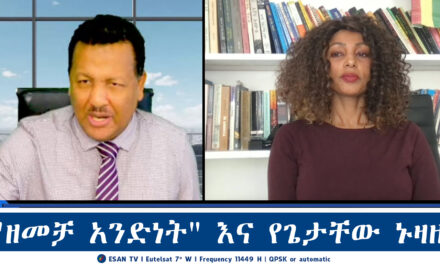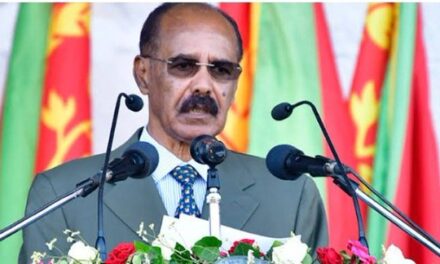ADDIS ABABA, Ethiopia (ESAN TV) — Ethiopia’s diplomacy is shifting from a defensive posture to an offensive one, according to the Ethiopian Institute of Foreign Affairs. This change is made possible by creating a national situation that allows Ethiopia to set agendas for others and conduct offensive diplomacy.
The announcement came during the third Red Sea and Gulf of Aden Countries Consultative Forum organized by the institute. At the forum, held on Thursday, May 23, 2025, at the Sheraton Addis Hotel, the institute stated that Ethiopia’s interaction and competition with countries pursuing strategies to weaken it have changed.
The forum, themed “Navigating Gulf-Horn Economic and Security Cooperation: Opportunities, Challenges, and Future Directions,” brought together researchers and diplomats from neighboring Horn of Africa and Gulf of Aden countries.
Ethiopia’s request for sea access was presented at the forum as stemming from a desire for equitable joint use of the region’s natural resources, rather than an agenda of expansion or invasion. The forum provided an opportunity to impress upon regional countries that Ethiopia’s sea access request is a critical survival agenda.
Opening the forum, Institute of Foreign Affairs Director General Bedru noted the Red Sea and Gulf of Aden’s growing importance as a key geo-strategic region globally. He stated the institute is producing research results to strengthen regional and international cooperation, trust, collaboration, and mutual benefit in this critical geopolitical area.
He emphasized that Ethiopia views both the Nile River and Red Sea issues as vital national interests. He stated that Ethiopia desires these issues to be guided by sustainable mutual benefit and cooperation rather than conflict and pushing.
Responding to a question about pressure on Ethiopia shifting from the GERD to the Red Sea, Bedru stated that Egypt has a long-term strategy to prevent the equitable use of the Nile water. He added that Ethiopia has reached the stage of completing the Grand Ethiopian Renaissance Dam (GERD) by resolving project implementation issues. This has created a situation and opportunity for Ethiopia’s diplomacy to transition from defensive to offensive, allowing Ethiopia to become an agenda-setter.
He further explained that Egypt, having missed the chance to stop the GERD, is now attempting to pressure Ethiopia through other means, largely focused on the Red Sea. These attempts are aimed at preventing Ethiopia from returning to the sea and are described as unsuccessful and futile.
Lieutenant General Yimer Mekonnen, head of the Education and Training Department of the Ethiopian National Defense Force, also spoke at the forum. He underscored that protecting Ethiopia’s national interests in both the Red Sea and Gulf of Aden requires cooperation and joint work with neighboring countries. He highlighted Ethiopia’s significant contributions to international peacekeeping since the Korean War and its constructive role in ensuring peace in the Horn of Africa and Red Sea region. Lt. Gen. Yimer urged prioritizing dialogue over confrontation, unity over division, shared prosperity over poverty, and a long-term vision, stressing the need for future collaboration.
Various research papers on the region’s geopolitical atmosphere were presented and discussed by scholars, diplomats, and politicians from different countries. These included issues related to Ethiopia’s use of Nile water and sea access, which have led to regional tension. Presenters and discussants offered solutions and alternative perspectives on issues causing tension in the Horn of Africa and the Red Sea.
Ethiopia’s Diplomacy Shifting to “Offensive” Posturing








